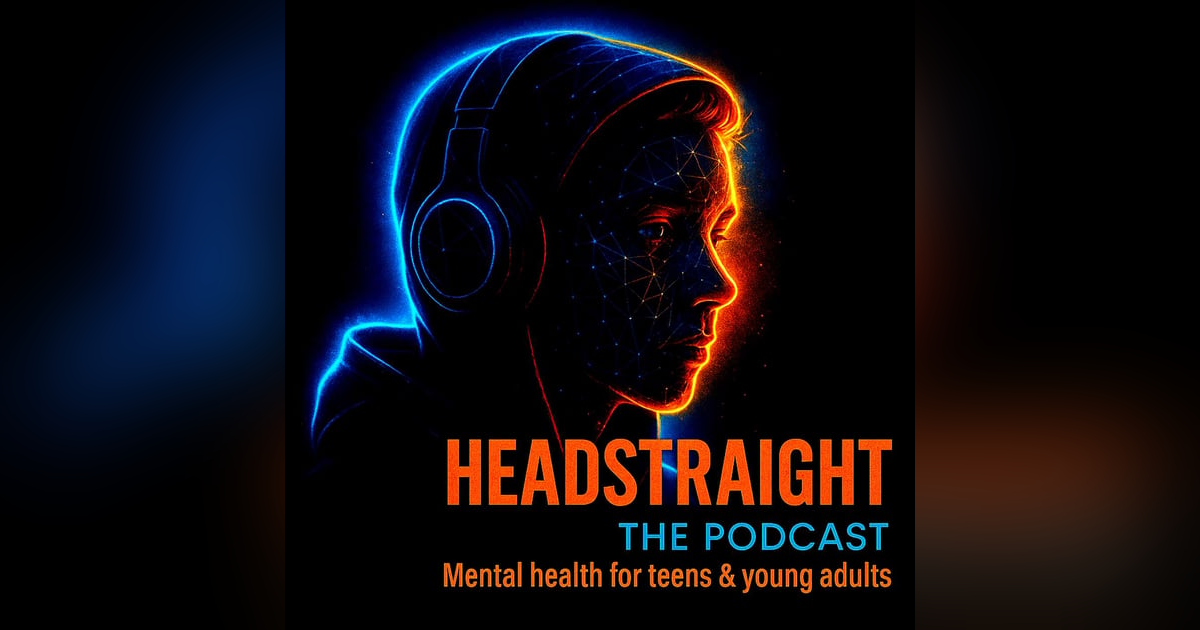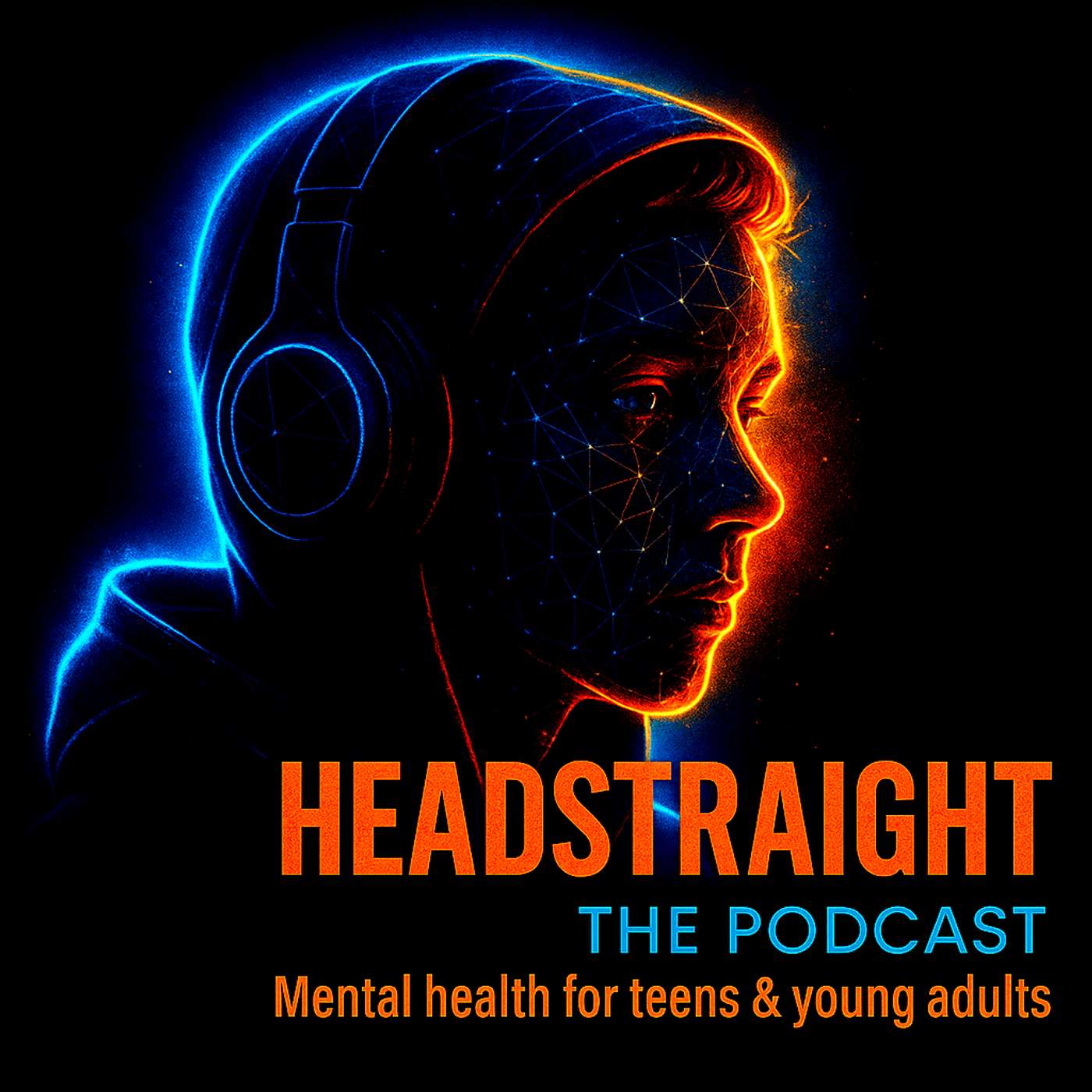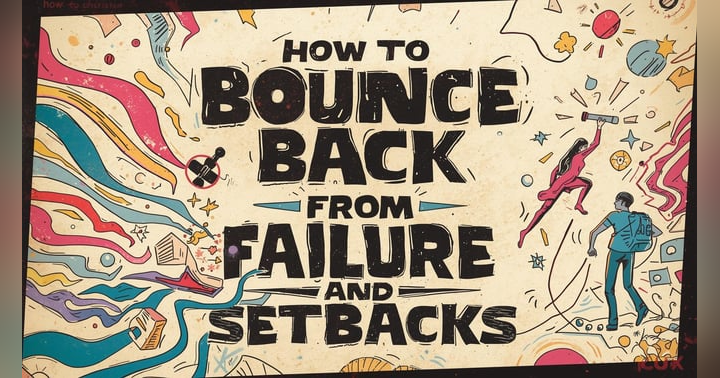The Truth About Failure (and How to Recover From It)


Failure hurts more than most people admit, especially for teens and young adults facing mental challenges. Setbacks can spark self-doubt and initiate a shame spiral, often leading to guilt trips and feelings of hopelessness. In this episode, hosted by Mark Taylor, we break down the emotional impact of failure and its connection to teen mental health. Discover why these experiences weigh heavily on your well-being and the traps that keep you from moving forward, like overthinking and losing motivation.
You’ll learn the crucial difference between failure and feedback as we explore how to reframe setbacks into opportunities for growth. Most importantly, we provide practical advice tailored for teens on rebuilding self-esteem and self-control. We'll share small, actionable steps to help you tackle mental challenges head-on and bounce back stronger from any setback. Listen in for real-life answers to help you overcome self-doubt and emotional hurdles.
Want to get involved?
I’d love to hear from you:
- Send me a message → headstraight.co.uk/contact
- Leave me a voice note → headstraight.co.uk/voicemail
- Share your feedback by leaving a review (it helps more young people find the podcast) → headstraight.co.uk/reviews/new
Explore more from Headstraight:
- Read the blog version of every episode, packed with extra insights on self-sabotage, motivation, resilience, and mental health → headstraight.co.uk/blog
- Find out more about me, the host, and why I started this podcast → headstraight.co.uk/about
Need support right now?
If you’re struggling with anxiety, depression, or in crisis, visit our Resources page
for helplines, mental health services, and support options available in the UK and across the world.
Mark:
My name's Mark, and you're listening to Head Straight. Hello, you lot, and welcome back to episode two. Now today, we're gonna take a look at how to bounce back from setbacks. Because here's the thing, sometimes you sabotage yourself and that is what we covered in the last episode. But other times, life just smacks you in the face.
Mark:
You try, you give it your best and it still blows up in your hands. You revise for weeks, and you still bomb the test. You train really hard and still don't make the team. You put yourself out there, and you still get rejected. Now that's not sabotage.
Mark:
This is life handing you a setback. If you've ever sat there thinking, well, what's the point of trying if I just end up failing anyway? Then this episode's for you. So carry on listening. Because today, we're gonna break it down.
Mark:
We're going to take a look at why setbacks hurt more than we're prepared to admit. We're going to take a look at the three biggest mistakes that people make when failure hits. And we're going to take a look at how to bounce back in a way that leaves you stronger, not stuck. So firstly, we need to call it out. Failure stings like a bitch.
Mark:
It's not just about the result. It's what you make it mean to yourself. So if you bomb a test, it's not just about the grade anymore. It feels like proof that you're stupid. If you get rejected, it's not just about that one person.
Mark:
It feels more like confirmation that you're just unloveable. And if you don't make it on the team, it stops being just about the sport and it feels like you're just not good enough. Now failure hurts because you don't just see the event, you attach it to your identity. It's never just I failed. It becomes I'm a failure.
Mark:
So let's just take a quick pause here. When was the last time that you found us something? Did you treat it as one bad moment? Or did you stamp it all over yourself like a label? So let's take a look at the three traps that people fall into when life knocks them down.
Mark:
Now the first one, you'll be familiar with this one, is the disappearing act. You vanish. No one hears from you. You dodge calls. You miss class.
Mark:
You stay in bed, and the pain feels easier to carry alone. But isolation just makes that story in your head so much louder. The second one is the hard mask. You'll probably know this one as well. You act like you just don't care.
Mark:
Whatever didn't mean anything anyway. But deep down, oh, yeah, it did. And pretending that it didn't? Well, that just stops you from actually learning or healing. And the last one is the all or nothing spiral.
Mark:
Now this one is where you blow one failure up into a lifetime prophecy. I failed this exam, so I'm gonna fail all exams. Or if I fail here, then I'm gonna fail everywhere. Sound familiar? Probably.
Mark:
Because these are the traps that keep you locked in the pain. They protect you in the short term, but they block you from moving forwards. So what we need to do here is reframe the story. Failure doesn't mean that you're broken. It means that you tried.
Mark:
It means that you cared enough to put yourself on the line. And every time you do that, this is where you gather data. Think about athletes. They fail constantly. They miss shots.
Mark:
They lose games. They have the bad performances. But they don't stamp failure on their identity. They use the failure as feedback. They take a look at what worked, what didn't, and what they can do next time to improve.
Mark:
You don't need to erase failure. You just need to reframe it. From this proves I'm not good enough to this teaches me what I need for next time. So just stop and ask yourself this question. If I looked at it as feedback instead of a verdict, what's the one lesson I could learn here?
Mark:
Now if you're still with me, brilliant. Because here's where we go into the gold. Because bouncing back isn't about pretending that it didn't hurt, because it does. It's about rebuilding momentum in a way that makes you stronger. So let me give you three tips to work from.
Mark:
The first one is feel it. Don't fake it. Because failure hurts, as I've said, like a bitch. Ignoring it or slapping on toxic positivity just buries it deeper. So the first step, admit that it sucked.
Mark:
Cry if you need to. Vent if you need to. Write it out. Do whatever you can to let it move through you instead of setting up camp inside your brain. Deep breath there.
Mark:
The next one is shrink the battlefield. When you're knocked down, your brain wants to fix everything. But whatever you do, don't. Pick one small step that you can actually win. You failed an exam?
Mark:
Great. Then just do ten minutes of review, not a five hour study marathon. Fell out with somebody? Send one honest text. And whatever you do, don't send a 10 page apology.
Mark:
Because small wins rebuild trust in yourself. And the third point is REWRITE THE LABEL. Failure isn't you. It's a moment, a data point, a story that you're still writing. So instead of saying I failed, say I learned where I need to adjust.
Mark:
The language that you use literally changes how your brain stores the memory. And here's a bit more gold. Failure only defines you if you stop. If you keep moving, even in tiny steps, it just becomes part of your training montage. Now this is really important.
Mark:
This is the part that most people skip over in their comeback stories. The middle bit. Now everyone loves the rock bottom moment and the big victory moment, but no one no one talks about that messy bit in the middle. The messy bit is where you've decided not to quit, but you're nowhere near your finish line. And honestly, this is a really uncomfortable place to be.
Mark:
For example, you revise for another test, but the fear of failing again still sits there right in the pit of your stomach. You go back to training, and every missed shot you make, you question if you're wasting your time. You try to rebuild trust after a fallout, but it feels awkward and shaky and not at all like they show you in the movies. Now that right there is that awkward bit in the middle, and it's exactly where growth lives. Now most people think, if I'm doing it right, then it should feel easier than this.
Mark:
They're wrong. If it feels awkward, heavy or clumsy, then that's the proof that you're changing. Think back to any skill that you ever learned. The first time that you used a spoon, you covered yourself in custard. The first driving lesson, you stalled 20 times in that first ever lesson.
Mark:
In your first job, you messed up every day for at least the first week. Awkwardness isn't failure. It's a sign that your brain's rewiring. And here's a bit more gold. Bouncing back isn't about wiping away the setback.
Mark:
It's about showing up in that awkward middle and choosing not to quit. And doing it again and again and again. So if you're in that stage right now where you're doubting, second guessing, wishing it was easier, you need to know that you're not broken. You're exactly where you're supposed to be. You're building resilience in real time.
Mark:
So let's pull this together. Failure hurts because we tie it to our identity. We fall into traps like disappearing, pretending not to care, and spiraling. But failure isn't a verdict. All it is is feedback, and bouncing back means feeling it, shrinking the battlefield, and rewriting the label.
Mark:
So now you know all that. Let me set you your challenge for this week. I want you to think of one recent failure or setback. Then I want you to name the trap that you fell into. Did you disappear?
Mark:
Did you mask it? Did you spiral? Then I want you to write down one lesson. The bit of feedback that was hiding right in the middle of all of that messy stuff. And then I want you to pick one small step to move forwards.
Mark:
Just one. Because here's the truth: failure isn't the opposite of success. It's part of it. Every stumble, every rejection, every time you're told not this time It's data that you can use to build stronger foundations. You don't bounce back by erasing failure.
Mark:
You bounce back by carrying it with you, learning from it, and proving to yourself that it doesn't get the last word. Now I wanna take a look to next week's episode. Once you've picked yourself up, you still face another problem, and that problem is motivation. Because sometimes the setback knocks it clean out of you. You stop asking how do I bounce back?
Mark:
And you start asking what's the point? And this is where we're heading in episode three. Finding motivation when you've lost it. Because bouncing back is only half the battle. The next step is getting your spark back.
Mark:
So are you ready for this? I'll see you in the next episode.













